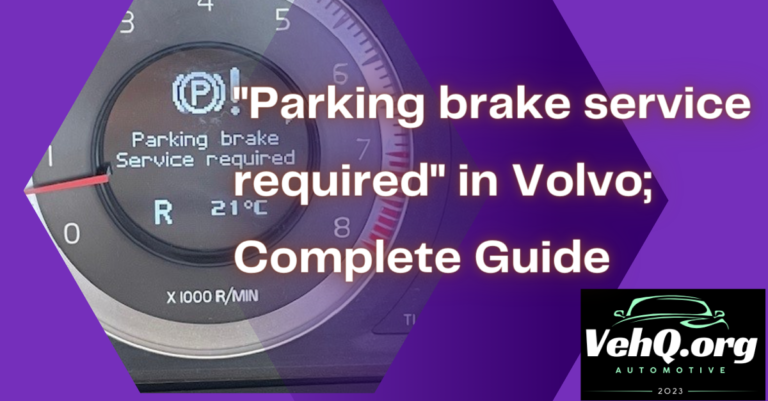A car’s air conditioning (AC) system is vital for comfort, especially during hot weather. However, if you hear a clicking noise from the AC compressor, it could indicate several potential issues. Understanding these causes and knowing how to address them can help maintain your AC system’s efficiency and prevent further problems.
1. Common Causes of Clicking Noise
Low Refrigerant Levels
When the refrigerant level is low, the compressor can click as it cycles on and off. This happens because the system struggles to maintain the necessary pressure to operate efficiently.
Clutch Problems
The AC compressor clutch engages and disengages the compressor. If there’s an issue with the clutch, it can cause a clicking noise. This might be due to wear and tear or misalignment.
Loose or Damaged Parts
Loose parts inside the compressor, such as bolts or mounts, can cause a clicking sound. These parts may rattle around, creating noise whenever the AC is turned on.
Blocked or Damaged AC Lines
If the AC lines are blocked or damaged, it can cause pressure imbalances, leading to a clicking noise. The system might be working harder to push refrigerant through restricted areas.
Electrical Issues
Faulty relays or other electrical components can cause the compressor to click. These issues often result in the compressor turning on and off intermittently, producing a clicking noise.
2. Identifying the Noise
Characteristics of the Clicking Noise
A clicking noise from the AC compressor is typically rapid and rhythmic. It often starts when the AC is turned on and may vary in intensity.
Differentiating from Other Noises
Clicking noises are different from the usual hum or whir of the AC compressor. They are more persistent and irregular, unlike the consistent sound of a well-functioning system.
Locating the Source
To pinpoint the noise, listen carefully while the car runs. You might use an automotive stethoscope or consult a professional mechanic to accurately identify the source.
3. Troubleshooting Steps
If your car’s AC compressor is making a clicking noise, follow these step-by-step troubleshooting steps to identify and potentially resolve the issue:
Step 1: Check Refrigerant Levels
- Locate the AC System Ports: Identify the low-pressure and high-pressure service ports on your car’s AC system.
- Low-pressure port is usually found on the larger diameter tubing between the compressor and evaporator.
- High-pressure port is typically on the smaller diameter tubing between the condenser and evaporator.
- Attach the Gauge: Connect an AC gauge to the low-pressure port to measure the refrigerant level.
- Read the Pressure: With the car running and the AC on, read the pressure on the gauge.
- Low Refrigerant Level: If the reading is below the normal range (usually around 25-45 psi for the low-pressure side), it indicates a low refrigerant level which can cause the compressor to click.
- Add Refrigerant: If necessary, add refrigerant to the system using a recharge kit, following the instructions provided with the kit (zimairconditioning.com)
Step 2: Inspect for Loose Parts
- Turn Off the Engine: Ensure the car is off and the keys are removed from the ignition.
- Open the Hood: Locate the AC compressor under the hood.
- Check Bolts and Mounts: Inspect all the bolts and mounts around the compressor. Look for any that are loose or missing.
- Tighten Loose Bolts: Use a wrench to tighten any loose bolts. Ensure all components are securely fastened.
Step 3: Examine AC Lines
- Visual Inspection: Check the AC lines for any visible signs of damage or blockages.
- Cracks or Leaks: Look for cracks, leaks, or worn spots in the lines.
- Kinks or Bends: Ensure the lines are not kinked or excessively bent, which can restrict refrigerant flow.
- Clear Blockages: If you find any blockages or damage, clear them if possible or replace the damaged sections.
Step 4: Test Electrical Components
- Locate Relays and Fuses: Find the fuse box and locate the AC compressor relay and fuse.
- Check the Fuse: Remove the fuse and inspect it for any signs of damage. Replace it if it appears blown.
- Test the Relay: Swap the AC compressor relay with another identical relay in the fuse box to see if the clicking noise stops. If it does, replace the faulty relay (Car Fix Boss).
Step 5: Check the AC Compressor Clutch
- Visual Inspection: With the engine off, visually inspect the AC compressor clutch located at the front of the compressor.
- Engage the Clutch: Start the engine and turn on the AC to see if the clutch engages. It should click and start spinning when the AC is on.
- Listen for Noise: If the clutch makes a clicking noise repeatedly or doesn’t engage properly, it may need adjustment or replacement.
Step 6: Professional Diagnosis
If the above steps do not resolve the issue, it is best to consult a professional mechanic. They can perform a thorough diagnosis using specialized tools and equipment. Here’s how to proceed:
- Schedule an Appointment: Contact a reliable mechanic or automotive service center.
- Describe the Issue: Explain the symptoms and steps you’ve already taken.
- Professional Inspection: Allow the mechanic to perform a detailed inspection, including checking for deeper mechanical or electrical issues and refrigerant levels.
- Follow Recommendations: Based on the mechanic’s findings, follow their recommendations for repairs or part replacements.
By following these troubleshooting steps, you can address common causes of a clicking AC compressor and ensure your car’s air conditioning system remains in good working order. Regular maintenance and prompt attention to unusual noises are key to preventing more significant issues down the road.
When to Seek Professional Help
If basic troubleshooting doesn’t resolve the issue, it’s advisable to seek professional help. A mechanic can provide a thorough inspection and identify more complex problems.
Choose a mechanic with good reviews, proper certifications, and recommendations from other customers. This ensures your vehicle receives the best care.
4. Preventive Measures
Regular Maintenance
Regular maintenance of your car’s AC system can prevent issues from developing. This includes checking refrigerant levels, inspecting the compressor, and ensuring all parts are in good condition.
Proper Use
Avoid turning the AC to full blast immediately after starting your car. Gradually increase the cooling to ease the load on the system and prevent wear.
5. FAQs
Q1: Can I drive with a clicking AC compressor?
A: While it might be possible to drive with a clicking compressor, it’s not recommended. The noise indicates an underlying issue that could worsen over time, potentially leading to more expensive repairs.
Q2: How often should I check my AC system?
A: Regular checks during routine maintenance visits are advisable. However, if you notice any unusual noises or performance issues, have it checked immediately.
Q3: Will low refrigerant damage my compressor?
A: Yes, running your AC system with low refrigerant can cause the compressor to work harder, leading to damage over time.
Q4: Can I fix a clicking compressor myself?
A: Basic checks and maintenance can be done at home. However, for more complex issues, it’s best to consult a professional mechanic.
Q5: How much does it cost to fix a clicking AC compressor?
A: Costs can vary widely depending on the issue. Simple fixes like tightening bolts might be inexpensive, while replacing the compressor can be costly, ranging from $500 to $1,200 or more.
Conclusion
A clicking noise from your car’s AC compressor can be concerning, but understanding the potential causes and addressing them promptly can help maintain your AC system’s efficiency. Regular maintenance and professional help when needed are key to preventing and resolving these issues, ensuring your comfort and the longevity of your vehicle’s AC system.
This post should provide a comprehensive understanding of why your car’s AC compressor might be making a clicking noise, how to identify the issue, and what steps to take next. Regular maintenance and prompt attention to unusual noises are crucial for keeping your AC system in top condition.




One Comment